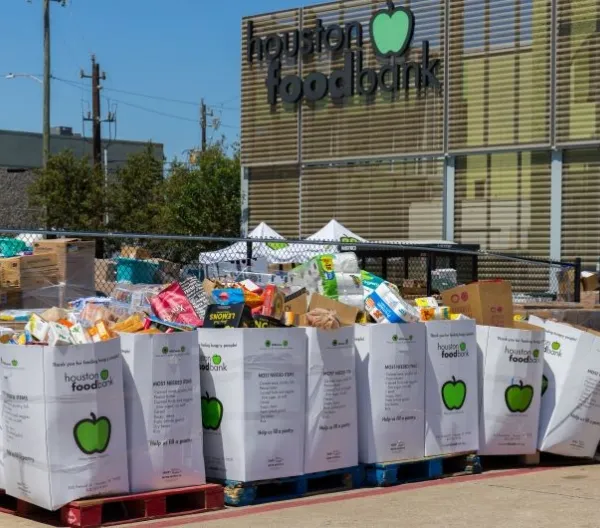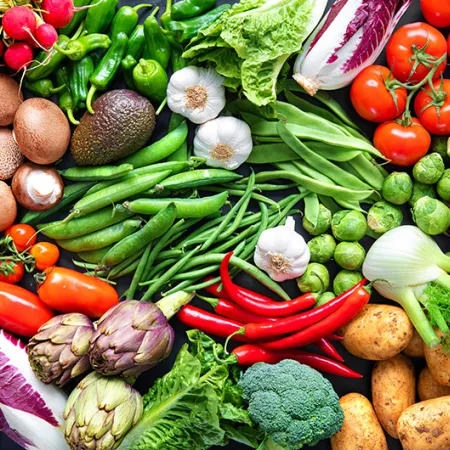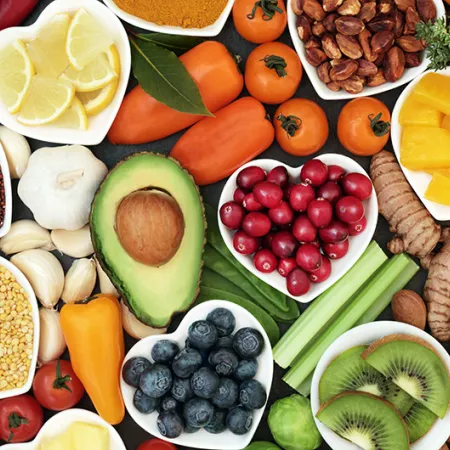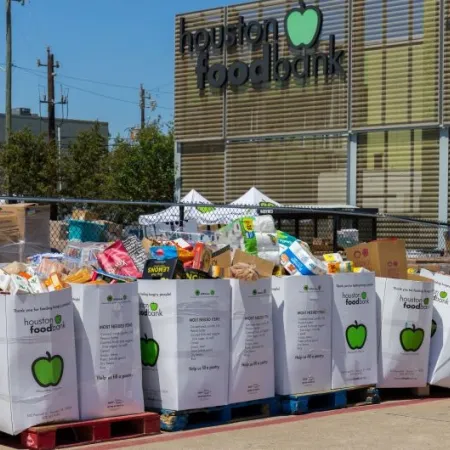How Big Food masquerades as concerned consumers

wifesun - stock.adobe.com.
When New Yorkers for Safe and Affordable Groceries opposed the Food Safety and Chemical Disclosure Act in Albany last year, we assumed they represented real New Yorkers concerned about food safety and rising grocery costs.
The group claimed the bill would harm small businesses, increase grocery prices, and jeopardize food assistance programs. In reality, the bill would be a monumental step toward addressing the harms of packaged, processed foods and making groceries safer for New Yorkers. It would ban three harmful food chemicals—potassium bromate, propylparaben, and Red 3—and require large companies to prove their ingredients are safe. The bill exempts small businesses and will not raise grocery prices; it simply requires disclosure of safety evidence to the state. CSPI has spent the last three years advocating for the bill alongside small business owners, community members, parents, and farmers—the very New Yorkers this group claims to represent.
Pulling the curtain back, we quickly discovered that the group wasn’t what it appeared to be. We learned that New Yorkers for Safe and Affordable Groceries was the food industry in disguise. Scroll past their website’s messaging about fighting for food access, equity, and affordability, and in fine print, you’ll find: “copyright 2025, Consumer Brands Association.”
Consumer Brands Association (CBA) is one of the biggest food industry trade associations in the country, representing food giants and other companies in the packaged goods industry. Their members include massive multinational manufacturers and retailers like Coca-Cola, General Mills, Kraft Heinz, Nestlé, PepsiCo, Amazon, and Target. Collectively, CBA’s 70+ member companies, representing over 2,000 brands, make up 10 percent of the national gross domestic product. They aren’t New Yorkers or consumers, and their mission isn’t protecting public health or food affordability—it’s protecting corporate profits.
This tactic of faking a grassroots movement, aptly named astroturfing, isn’t new. Big Tobacco has used it for decades. In 1993, Philip Morris, the tobacco behemoth behind Marlboro, poured more than $4 million into a “smokers’ rights” group, the National Smokers Alliance (NSA). Posing as a citizen-led movement, they recruited members through ads, newsletters, and at bars and bowling alleys to fight smoke-free laws. Their message, spread through well-funded media campaigns, was that laws limiting smoking were anti-American and an infringement on civil liberties.
Big Food uses the same playbook.
Just like Big Tobacco, the food industry is disguising corporate lobbying as consumer advocacy–this time to block a food safety bill.
Why is the New York Food Safety and Chemical Disclosure Act such a threat to Big Food?
Currently, manufacturers can introduce new food ingredients—or use existing ingredients in new ways—without FDA oversight by exploiting a loophole in federal law. A company is legally allowed to decide behind closed doors that a chemical is “generally recognized as safe” (GRAS) and use that chemical in food without notifying the FDA, disclosing safety evidence to the FDA, or getting FDA approval. Industry often pinky-promises that its closed-door reviews are rigorous and scientific, so consumers should trust that new ingredients are actually safe. While many GRAS ingredients have a long history of safe use, others have never been tested adequately for safety when they hit grocery shelves.
Take tara flour, a plant protein that entered the food supply through the GRAS loophole with no safety disclosure submitted to the FDA. Nearly 400 people got sick from tara flour, with some suffering permanent organ damage. Because food companies don’t have to share safety evidence with the FDA, it took the agency two years to investigate the incident, conduct a safety review of the ingredient, and declare tara flour unsafe for use in food.
How the Food Safety and Chemical Disclosure Act protects New Yorkers
The New York Food Safety and Chemical Disclosure Act ends the secrecy by requiring companies that skip FDA review of so-called GRAS chemicals to send their safety data to New York State regulators, who would then post it in an online database.
Companies are already supposed to have this information in order to legally declare a substance GRAS–so submitting it to the state should cost them next to nothing. The benefit is enormous: regulators could identify unsafe chemicals before they harm consumers, businesses could review GRAS safety data from an ingredient’s manufacturer before deciding whether to use or sell that ingredient, and companies might think twice before introducing untested chemicals, knowing their safety evidence will be public.
So why would an industry trade group like CBA fight greater transparency? Because public scrutiny from regulators, advocates, and consumers is exactly what they want to avoid.
Rather than admit their true motives for opposing the bill, CBA created New Yorkers for Safe and Affordable Groceries, exploiting the real, lived experiences of New Yorkers who work hard to afford safe, healthy groceries for their families, all for the food industry’s gain.
Join the fight for safer food
Don’t let Big Food co-opt your identity to put profit over food safety. Join our coalition of New Yorkers—real parents, pediatricians, farmers, small business owners, and community advocates—fighting for transparency and safety in our food system. We deserve to know what’s in our food. The food industry shouldn’t be allowed to keep us in the dark any longer.
New Yorkers, tell Albany: Protect our food, not corporate profit!
Not a New Yorker? Sign our petition: Stand up for safe food!
Meghan Enslow (she/her) is a Policy Associate on the Regulatory Affairs team and advocates for stronger food safety policies addressing unsafe food chemicals, fraudulent and dangerous dietary supplements, and foodborne pathogens.

Meghan Enslow
Policy Associate
More like this
The USDA’s Food Security Survey is irreplaceable
Government Accountability

What changed in the new Dietary Guidelines & why it matters
Healthy Eating

The Farm Bill: An opportunity to strengthen nutrition equity
Advocacy

5 things we want to see in the 2025 Dietary Guidelines
Healthy Eating

Meet the SHAM GRAS Act: A bill to weaken food chemical safety
Food Safety

How CSPI is fighting threats to public health
CSPI supports protecting sensitive locations from immigration enforcement
Government Accountability

The USDA’s Food Security Survey is irreplaceable
Government Accountability

What changed in the new Dietary Guidelines & why it matters
Healthy Eating

CSPI in 2025: Advancing food safety & public health for all
CSPI

5 things we want to see in the 2025 Dietary Guidelines
Healthy Eating


